The Best 80s Games That Set The Standards For Gaming
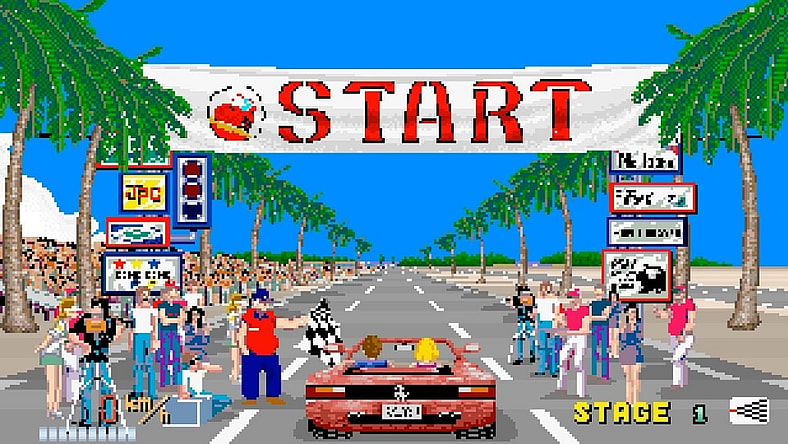
You have officially landed on the right page if you want to quench your nostalgia thirst! The 80s were a great decade for gaming, giving us titles that have defined entire genres and some that even hold up as super-fun today. While modern games have stunning graphics and are (usually) void of the old clunkiness, there’s a timeless charm in every glaring pixel of 80s classics.
The following titles were first in franchises that span decades and have laid the foundation for mechanics and rules that still reign in today’s gaming world.
Out Run

Designed by Yu Suzuki, who traveled to Europe for inspiration, Out Run is one of Sega’s staples. It was made by a small team in just ten months. An arcade driving game that didn’t just pioneer a gaming genre, but also a music genre of the same name. The game has a simple premise: avoid traffic with your blonde babe and reach one of five destinations before time runs out. Presented in a 2.5D form, the player controls a Ferrari Testarossa convertible from a third person and thanks to advanced graphics, branching paths, and a selectable soundtrack composed by Hiroshi Kawaguchi, the game became an instant hit.
It revived the arcades with its hydraulic arcade cabinet that also added a new dimension to gameplay, and in doing so, became the highest-grossing arcade game of 1987. The 1986 hit spawned sequels and spin-offs that have lived until 2009 with the last release Out Run: Online Arcade.
Duck Hunt

When talking about 80s games, passing on Duck Hunt should be counted as a crime. Released in 1984, this Nintendo light gun shooter became an iconic NES launch title. Players used the NES Zapper to shoot ducks or clay pigeons displayed on CRT screens.
Inspired by Nintendo’s Laser Clay Shooting System, Duck Hunt was both a critical and commercial success. With over 28 million copies sold, it helped popularize light gun games and remains a nostalgic favorite.
Donkey Kong
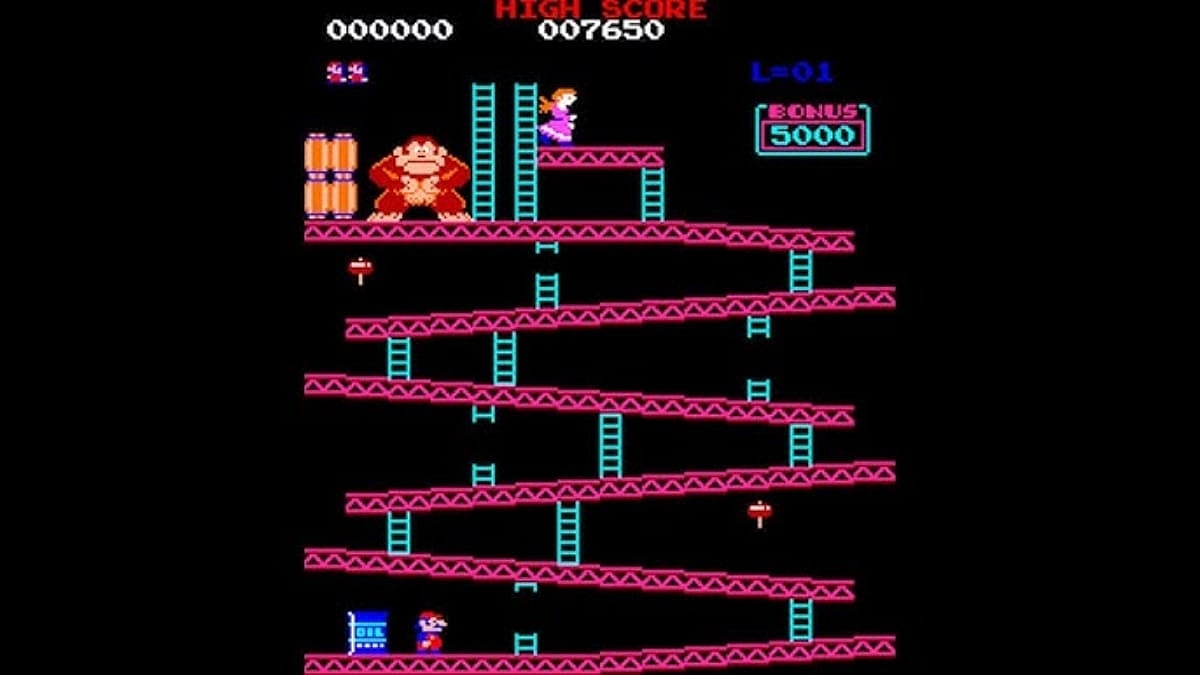
Another fantastic game that took up countless hours of our time is Donkey Kong (1981). It is now an arcade classic and it even introduced the iconic Mario character to the audience, under the name ‘Jumpman’. The reason: well, players controlled Jumpman to climb platforms and avoid obstacles to rescue Pauline from Donkey Kong.
Created by Shigeru Miyamoto, it draws clear inspiration from Beauty and the Beast and King Kong, and it became a massive success. It topped the grossing chart in 1981, but more importantly, it launched a legendary franchise.
Super Mario Bros.

While Mario and Luigi were heroes of their own game, Mario Bros, two years prior, it was Super Mario Bros. from 1985 that popularized the Italian plumbers. The game offered a multiplayer mode as players controlled either Mario or Luigi as they side-scroll the Mushroom Kingdom to save Princess Toadstool from King Koopa, who only later became known as Bowser.
The game sold 58 million copies worldwide and helped revive the industry after the 1983 crash. Super Mario Bros. popularized the side-scrolling platformer genre and the soundtrack, made by Koji Kondo, remains iconic to this day.
Mega Man
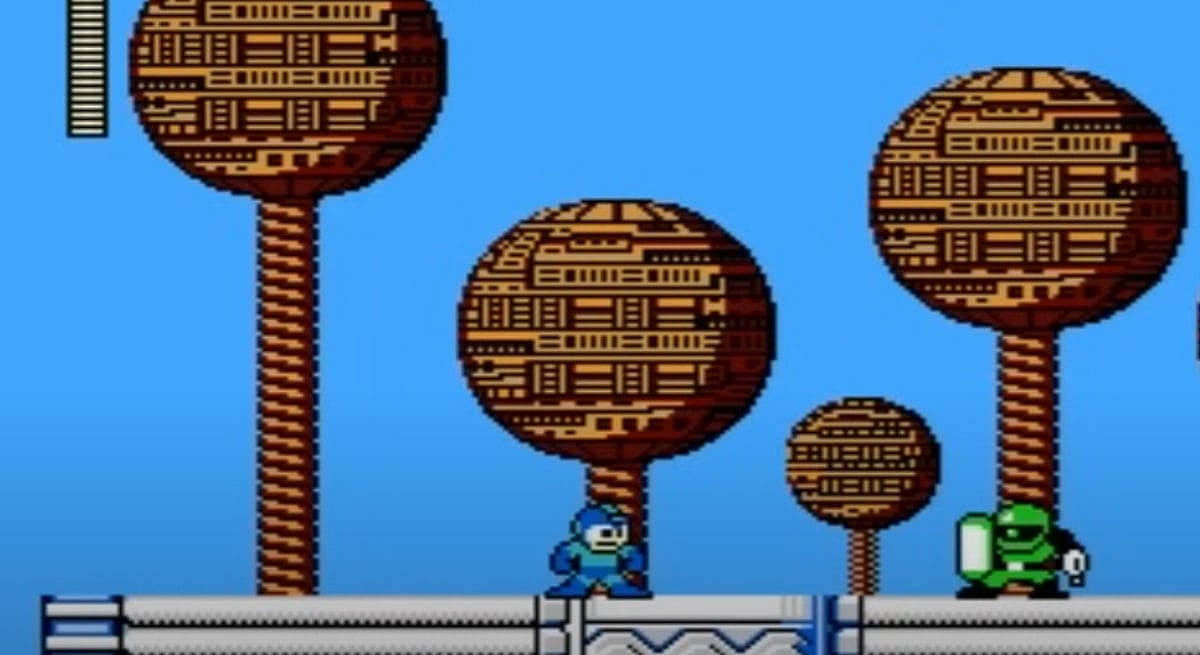
Mega Man is another beloved figure in the gaming world. The first game, developed and published by Capcom for the NES in 1987, set some franchise standards such as non-linear gameplay and boss battles.
The success of the first game featuring a humanoid robot spawned an entire franchise that includes video games, animated shows, and movies.
Tetris
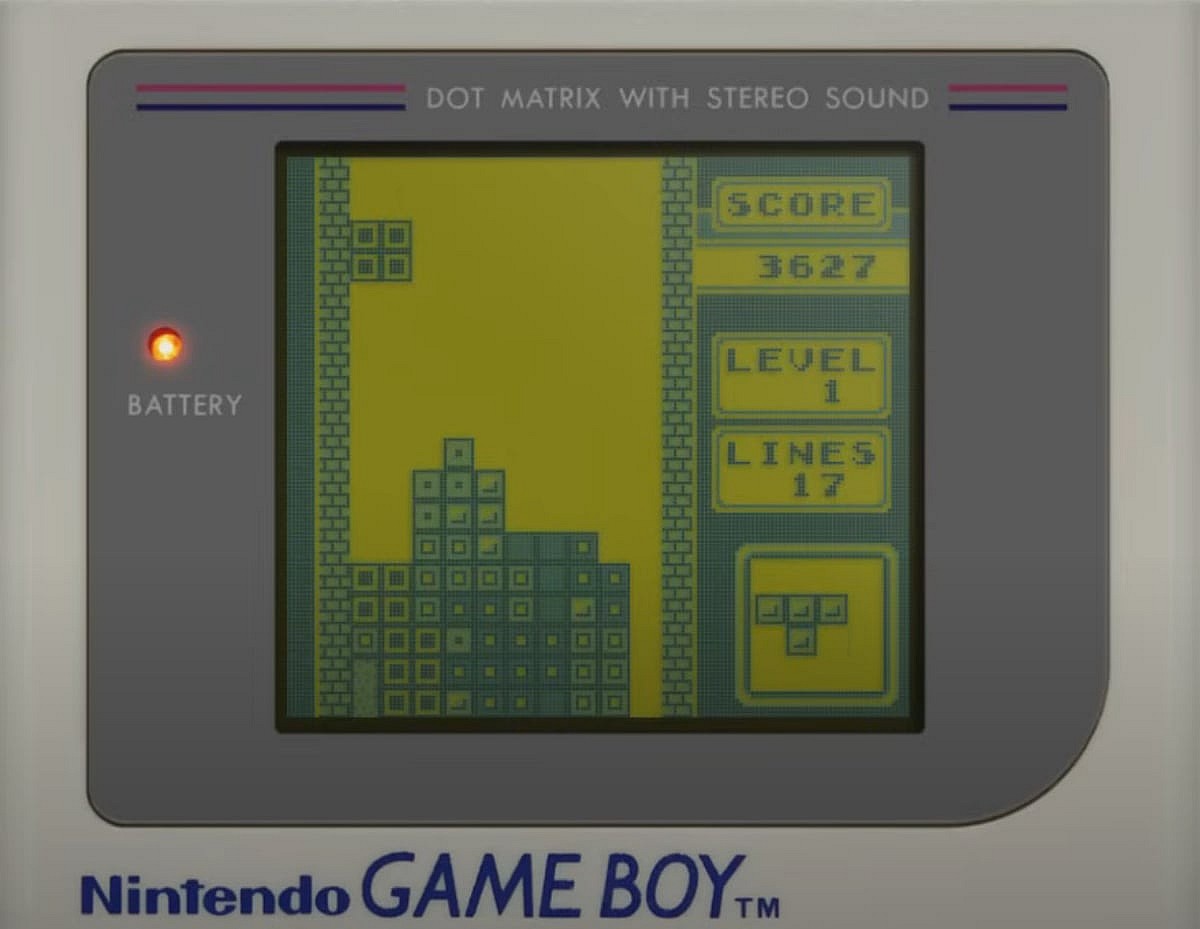
Tetris was created by Alexey Pajitnov, a Soviet software engineer in 1984. It was Nintendo that popularized the game with the Game Boy version of Tetris being one of the best-selling games of all time. Overall, Tetris has sold over 200 million units.
It can easily be the most addictive game ever made, with a simple gameplay that challenges the player to clear lines by fitting falling tetrominoes (yes that’s what they are called) into place. There are more than 200 versions of the game ported to more than 65 platforms.
Street Fighter
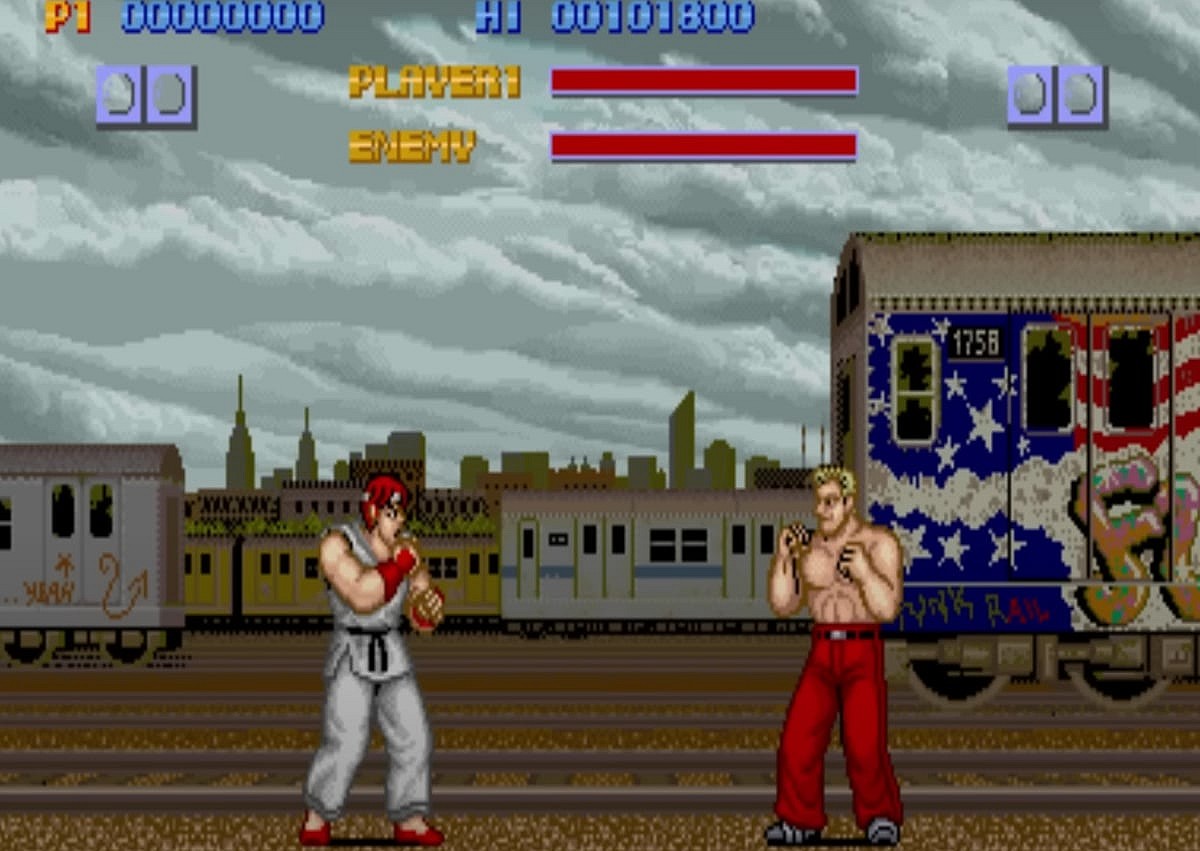
Another of Capcom’s ’80s treasures is Street Fighter. Debuted in 1987, Street Fighter laid the groundwork for competitive fighting games. Introducing popular mechanics like special moves, it quickly became a commercial hit.
While the sequel even further revolutionized the genre, the original’s influence is undeniable, and Takashi Nishiyama (creator), is one of the most recognizable names in the industry.
The Legend of Zelda
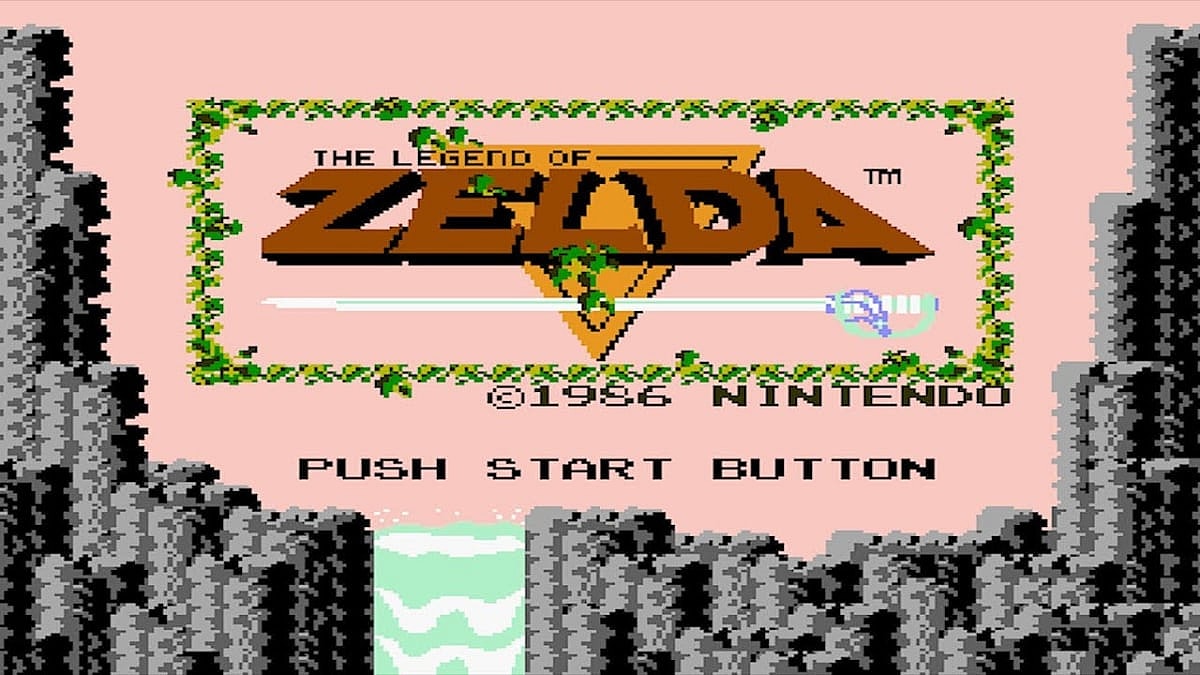
The Legend of Zelda (1986), developed by Shigeru Miyamoto and Takashi Tezuka and published by Nintendo, revolutionized the action-adventure genre and set the standard for RPGs.
Set in the high fantasy land of Hyrule, players take on the role of the savior Link, guiding the elf-like boy through an open world, exploring dungeons and solving puzzles to rescue Princess Zelda from Ganon. It became a critical and commercial hit, launching one of gaming’s most iconic franchises, with the latest title The Legend of Zelda: Echoes of Wisdom.
Robotron: 2084
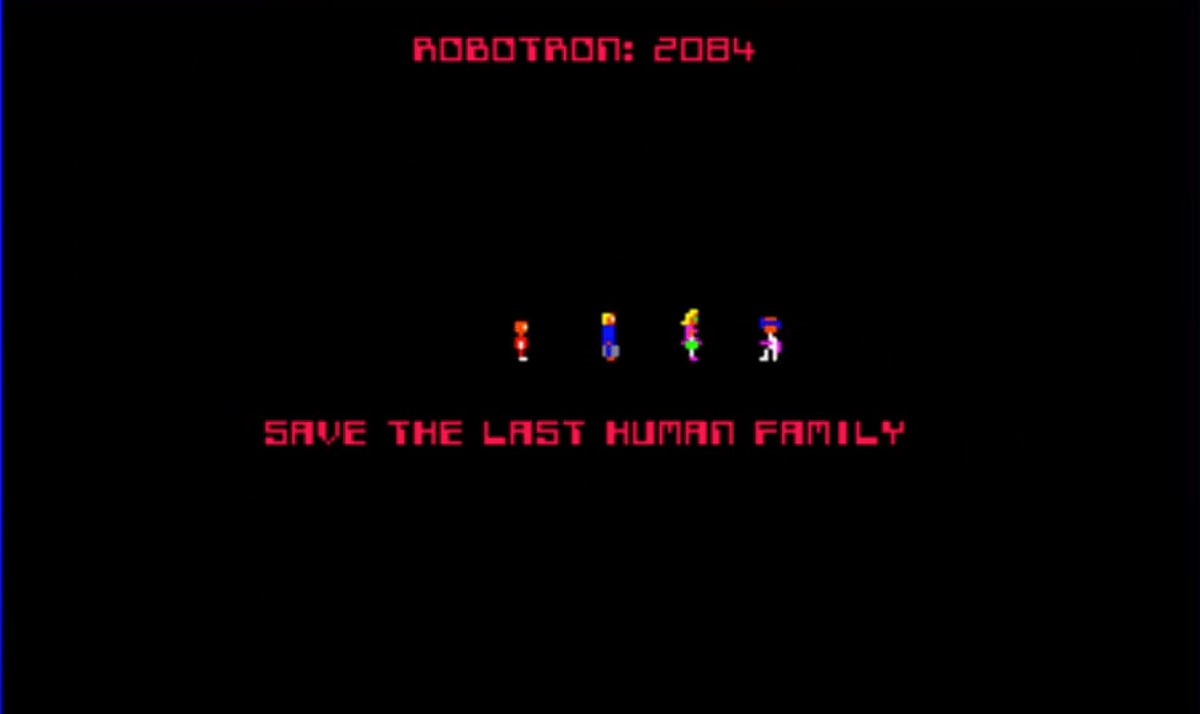
Robotron: 2084 came out in 1982. This shooter, created by Eugene Jarvis and Larry DeMar for Williams Electronics, was groundbreaking in many aspects, including its dual stick set up.
Drawing inspiration from Nineteen Eighty-Four and Space Invaders, it brought intense multidirectional gameplay as players battle robot enemies to rescue humans. The dual-joystick controls influenced countless future games and became a staple in the genre. It was ported to systems like Atari and was critically acclaimed, but the sequels didn’t stick.
Elite
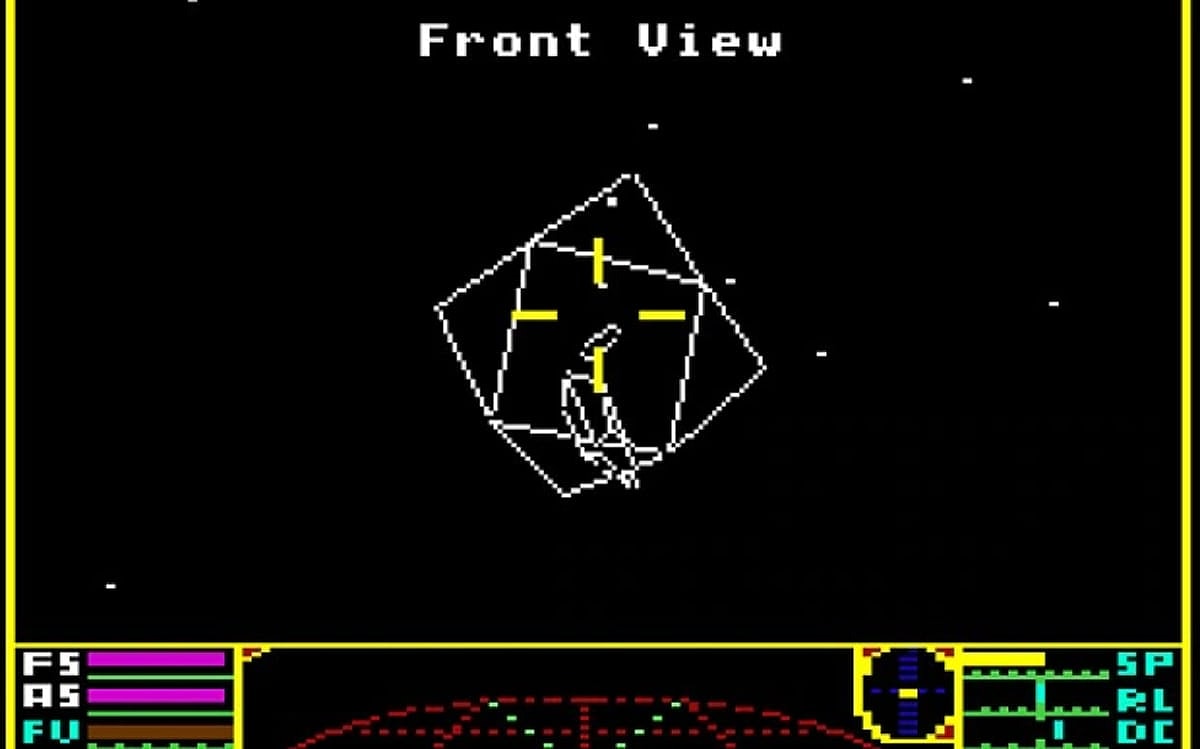
Elite (1984) was developed by David Braben and Ian Bell. It was published by Acornsoft for the BBC Micro and Acorn Electron.
The game brought a number of innovations in the era it was released. These include wire-frame 3D graphics, open-ended gameplay, space trading mechanics, and a vast universe. Elite set the standard for space simulation games to come, such as EVE Online, No Man’s Sky, and Wing Commander, among others. The game has had other sequels and spin-offs but the original version from 1984 remains the most popular and one of the most influential games of the 80s.
